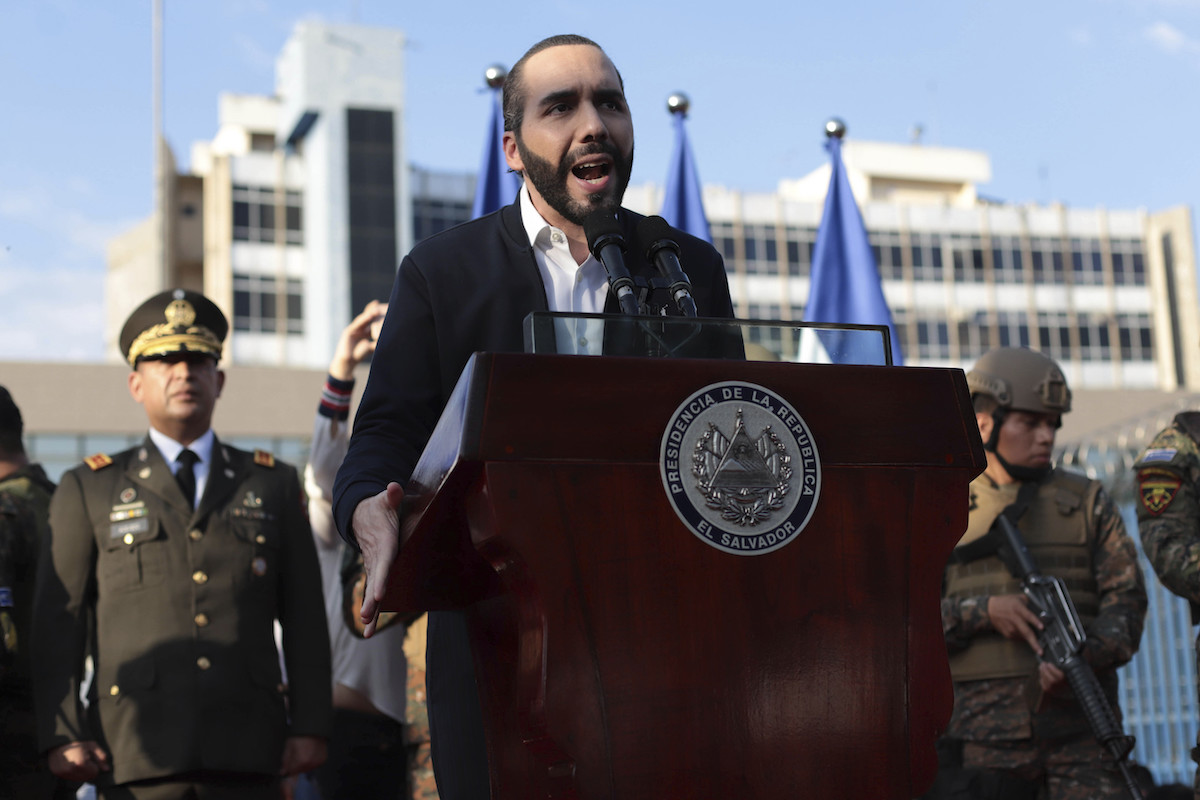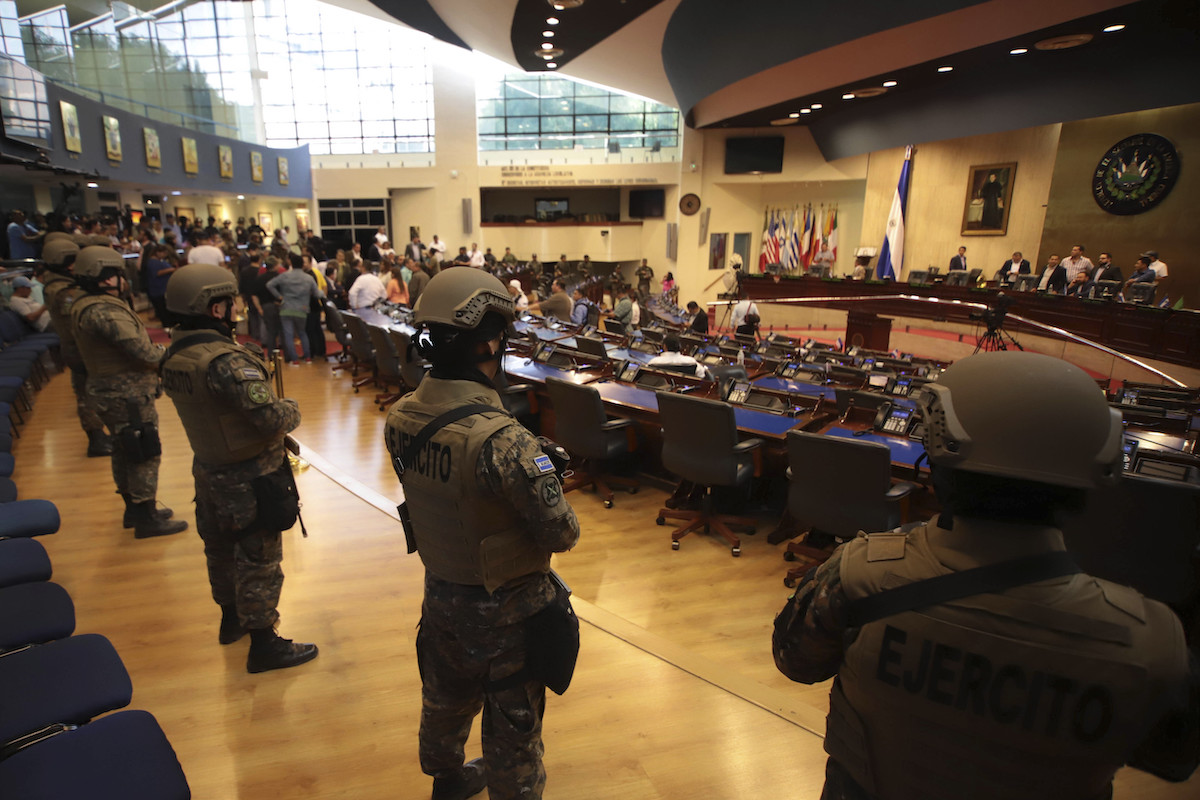

El Salvador President Nayib Bukele, accompanied by army soldiers, speaks to his supporters on the outskirts of Congress in San Salvador, El Salvador, Sunday, February 9, 2020. (AP Photo/Salvador Meléndez)
By MARCOS ALEMÁN, Associated Press
SAN SALVADOR, El Salvador (AP) — President Nayib Bukele said Tuesday he will obey a Supreme Court order that he stop pressuring lawmakers to approve a $109 million loan he is seeking to bolster El Salvador’s fight against gangs, lowering tensions after military and police were deployed to the congress over the weekend.
“Although we do not agree with what was resolved by [the court]… we will obey the order that was issued,” Bukele said in a statement.
The ruling Monday evening ordered the president not to use security forces in “activities contrary to established constitutional ends,” after he went to the Legislative Assembly building the previous day accompanied by hundreds of supporters as well as heavily armed officers and troops, including some special forces and sharpshooters who were posted on rooftops.
The scene provoked criticism both home and abroad, and calls for Bukele to respect democratic institutions.
The Supreme Court also ordered the defense minister and the head of national police not to deploy their forces for activities outside what’s in their legal purview and demanded the Council of Ministers end efforts to call an extraordinary session of congress to consider approval of the loan.
Bukele had called on lawmakers to attend such a session Sunday, but only 22 of the 84 members appeared. Lawmakers have said they want more time to consider the plan and they want more details before voting.
Members of a congressional commission met Tuesday to seek consensus but recessed until Monday.
Treasury Minister Nelson Fuentes said the court ruling would be heeded but does not bar the government from boosting security efforts.
“We will continue talks to reach the necessary political agreements and so that the security budgets are approved,” Fuentes said. “We will come to the Assembly as many times as necessary.”
Bukele’s initial response to the court ruling was to tweet that “the system protects itself. And that is how things remained the same,” though he later issued the statement saying he would heed the ruling.
“I think it is very positive that they agreed to obey the rule of law. Fortunately they have reconsidered and that gives the country peace,” said analyst Juan Carlos González Saca of the José Matías Delgado University.


Special Forces soldiers of the Salvadoran Army, following orders of President Nayib Bukele, enter at Congress to give security upon the arrival of the representative in San Salvador, El Salvador, Sunday, February 9, 2020. (AP Photo/Salvador Meléndez)
“They realized they committed a mistake, that it was not correct,” González Saca said, adding that Bukele’s popularity could be hurt by the recent events. “Not a single civil society organization in El Salvador or international body supported that action.”
In his judgment, the president will retain a strong base of support however, because his opposition is largely weakened and discredited.
Bukele intends the loan to fund phase three of an anti-crime initiative that the government and some analysts say has helped lower the murder rate in the gang-plagued country.
Just a few years removed from posting the world’s highest homicide rate, El Salvador recorded an average of 3.8 killings per day in January according to official figures, making it the least deadly month in the country since peace accords were signed in 1992 ending over a decade of civil war.
Last June, when Bukele took office, the country had 9.2 murders per day.
The president says that’s thanks to a nationwide deployment of police and troops.
González Saca said the reduction in homicides has been the government’s main achievement so far and many Salvadorans look favorably on the anti-crime initiative.


